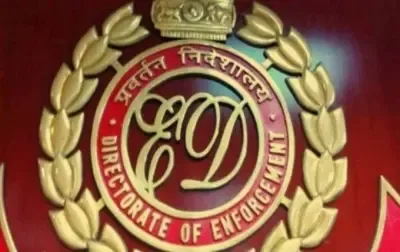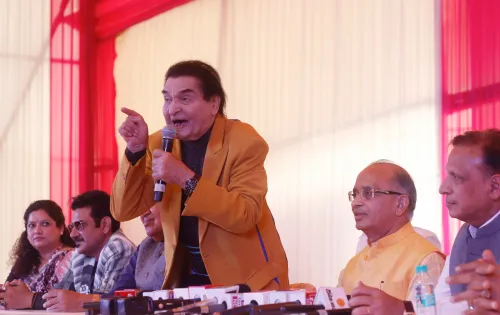What’s the Latest on the Co-operative Bank Fraud Case: ED's Raids in Bengaluru?

Synopsis
Key Takeaways
- The ED has conducted extensive raids linked to the fraud case.
- Over 15,000 depositors allegedly defrauded.
- Estimated financial loss exceeds Rs 100 crore.
- Investigation reveals potential money laundering activities.
- Multiple high-value properties uncovered.
Bengaluru, July 17 (NationPress) The Directorate of Enforcement (ED) agents executed a series of raids on Thursday linked to the Shushruti Co-operative Society fraud investigation within the city.
Sources indicate that actions were undertaken at over ten distinct locations throughout Bengaluru. The Bengaluru Central Crime Branch (CCB) had previously initiated a case against the Shushruti Co-operative Society in 2022, resulting in the arrest of numerous individuals after their inquiry.
The society was founded by N. Shrinivasa Murthy, who subsequently appointed many of his relatives as directors and members. Legal proceedings commenced upon discovering that the society had issued loans to insiders while failing to repay depositors.
Post the CCB's case, the ED commenced its separate investigation. Based on the FIR lodged by the CCB, the ED filed an ECIR (Enforcement Case Information Report) and began taking action.
Reports suggest that the ED Karnataka is executing search operations at over 10 sites in and around Bengaluru concerning Shushruti Souharda Bank, Shruthi Souharda Bank, and Shree Lakshmi Souharda Bank, along with their founders, N. Shrinivasa Murthy and his family.
This situation involves the alleged deception of more than Rs 100 crore from upwards of 15,000 depositors, who were enticed to invest with promises of high-interest returns, sources revealed.
The funds collected were redirected through uncollateralized loans to associates, with many of these loans becoming non-performing assets (NPAs). Additionally, the money was laundered and utilized for property acquisitions, showcasing clear violations of the Prevention of Money Laundering Act (PMLA).
The estimated proceeds of crime (POC) in this case exceed Rs 100 crore, as per sources.
So far, over 20 high-value properties—previously unidentified by the Karnataka Police under the Karnataka Protection of Interest of Depositors in Financial Establishments Act (KPIDE)—have been discovered during the ongoing search operations, sources disclosed.









